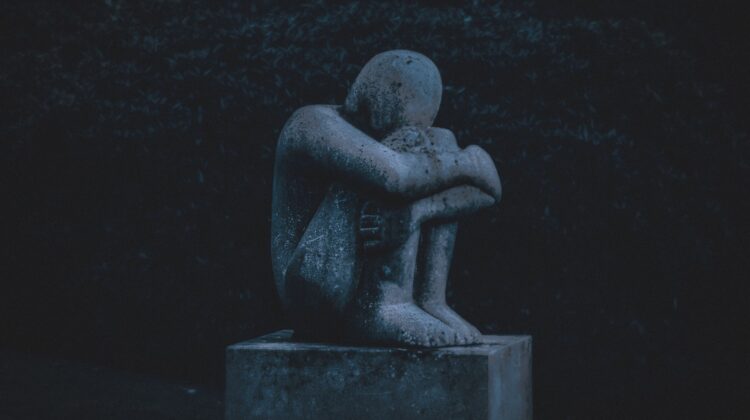
Suddenly, I am back to thinking about survivor’s guilt.
Having survived my hospitalization for Major Depressive Disorder, I am moving forward. Using the tools I discovered over the past 28 months, I am finding myself equipped to address depression’s ideas. And depression still has ideas. It wants me to come out and play. It misses our time together.
Depression has had to work overtime in its attempts to win me back.
I am so grateful that I have so far resisted depression’s call. My days are filled with hope, with expectation, sometimes even wonder. There are difficulties that are a normal part of everyone’s lives. Mine is not manic, where I am at an extreme high and then I crash on the rocks. It’s more everyday life.
My world changed when I said “no more” to depression.
Now, this was not a snap of the fingers and life was perfect. It was, and is, living each day and learning from each day. I no longer hide from depression. For instance, there is no denial about what caused my “lost year.” I jokingly called it that because I did not want to face what had happened.
Now I say every day, “I have depression, depression does not have me.”
I no longer run from, hide from, or ignore depression. And I have been keeping it out in the open where I can keep an eye on it. Secrecy is one of depression’s best tools. Well in my case depression always was happier when I only talked to it. Bringing in anyone else made depression angry.
Depression has made it clear that it wants to be my one and only.
Resisting this, I am moving forward and creating a more balanced life with depression. Knowing what it wants and needs to grow, I can avoid these triggers. By controlling my attitude, I shape my response to events. And yes, I cannot always control what happens, but I can always my attitude towards it.
Which leads me to wonder why I am feeling guilty for being alive?
Survivors’ guilt is real. And not just because it forms the basis for movies and TV episodes. It can be triggered by a myriad of life-changing events. In my case, I am still alive, but some with depression have chosen a different path. Their actions are permanent and unchangeable. And what’s next after death? Even with our best theological ideas about what comes after our lives end, we really do not know.
READ MORE: The Real Truth About Depression and My Survivors Guilt
People with depression that I personally knew have taken their lives, while I have not.
Before facing my depression, it was easy to judge other’s actions. Today, I am much more empathetic. I have seen the abyss and have been up against that wall. Every single day, I must push that rock up the same hill. Even this week, where I am feeling good, I still am aware of my depression.
Once, during my lost year, I seriously entertained my demise.
My hope had vanished and my desire to get up each day was gone. Seeing only as far as the next few minutes, I had no hope for the future. In fact, I saw no future. Depression was completely in charge, but I had no desire to see what was happening.
Once I went through the exercise of my plan to end my life, I chickened out.
This did not surprise me, for even as I was entertaining this idea, I knew for sure I would not follow through. As frightening as my day-to-day life was then, anything depression could throw at me was less frightening than my own death. My more recent episodes of depression validate my assertion that ending my life is not an option.
No one lives forever.
I am sure that a day will come where I have “made my peace” and my attitude towards death will change. I have known many people that have gone through this transformation. This left them to enjoy their final days, week, and in many cases, years.
Once again, it is not the event, it is our attitude towards it.
Having written this out, I am not feeling quite as much survivor’s guilt as when I woke up. It could just be that my coffee is kicking in. And sitting on the front porch, drinking my coffee while watching all the birds at my feeders can help clear my head.
So, I recognize that I am and will be alive for several more decades.
And I will get to choose my attitude towards those years. Spending the next 30 years feeling guilty that I chose a different path than others sounds crazy. And by crazy, I mean it’s a very selfish attitude because it’s not all about me. I am not being judged for deciding to learn from my depressive episodes. And changing my attitude towards depression has only made my life more balanced. I should never feel guilty for that.
Instead of guilt, I will celebrate my life and all the possibilities for my future.
So, let’s get started.







Leave a Reply